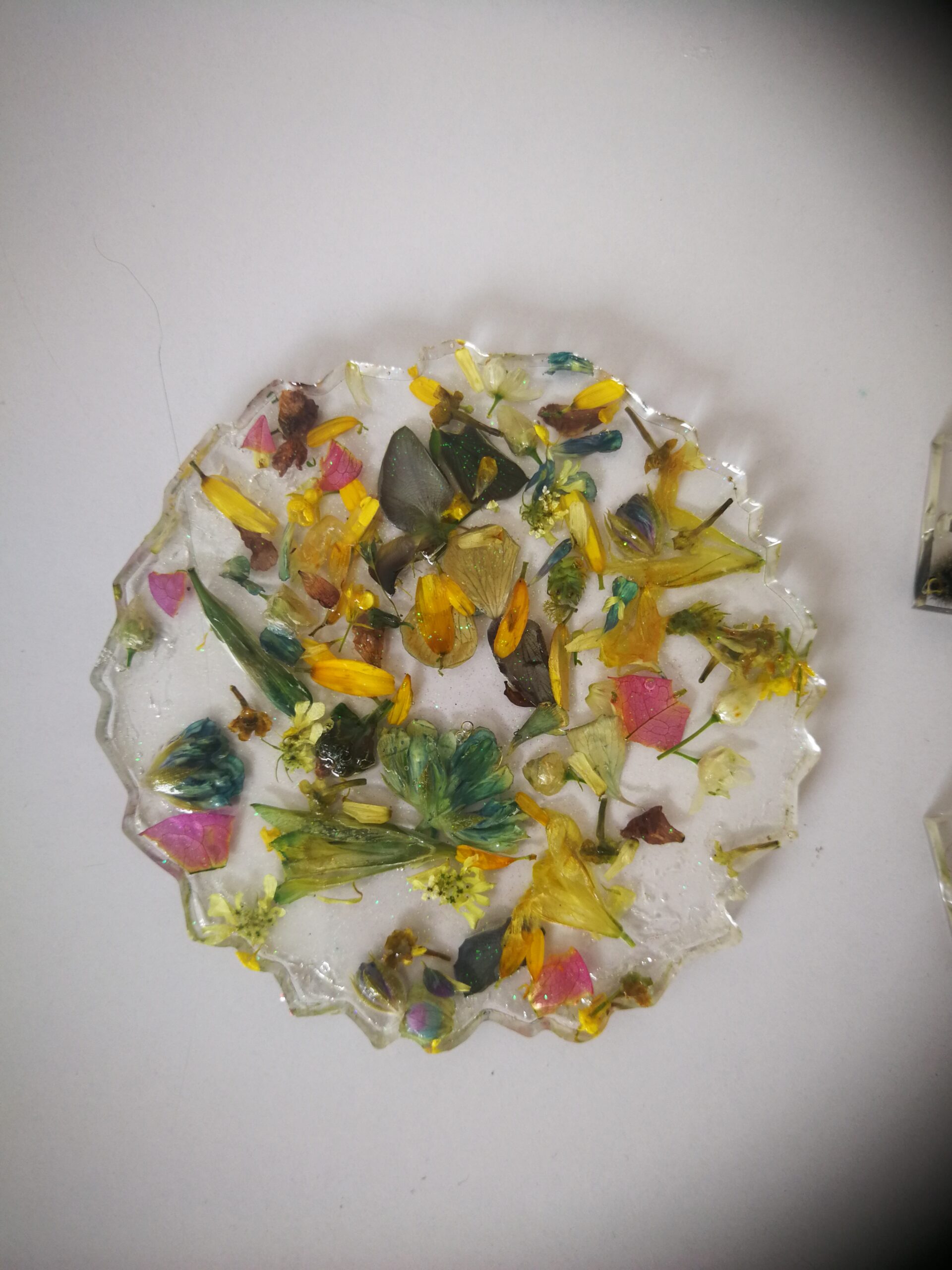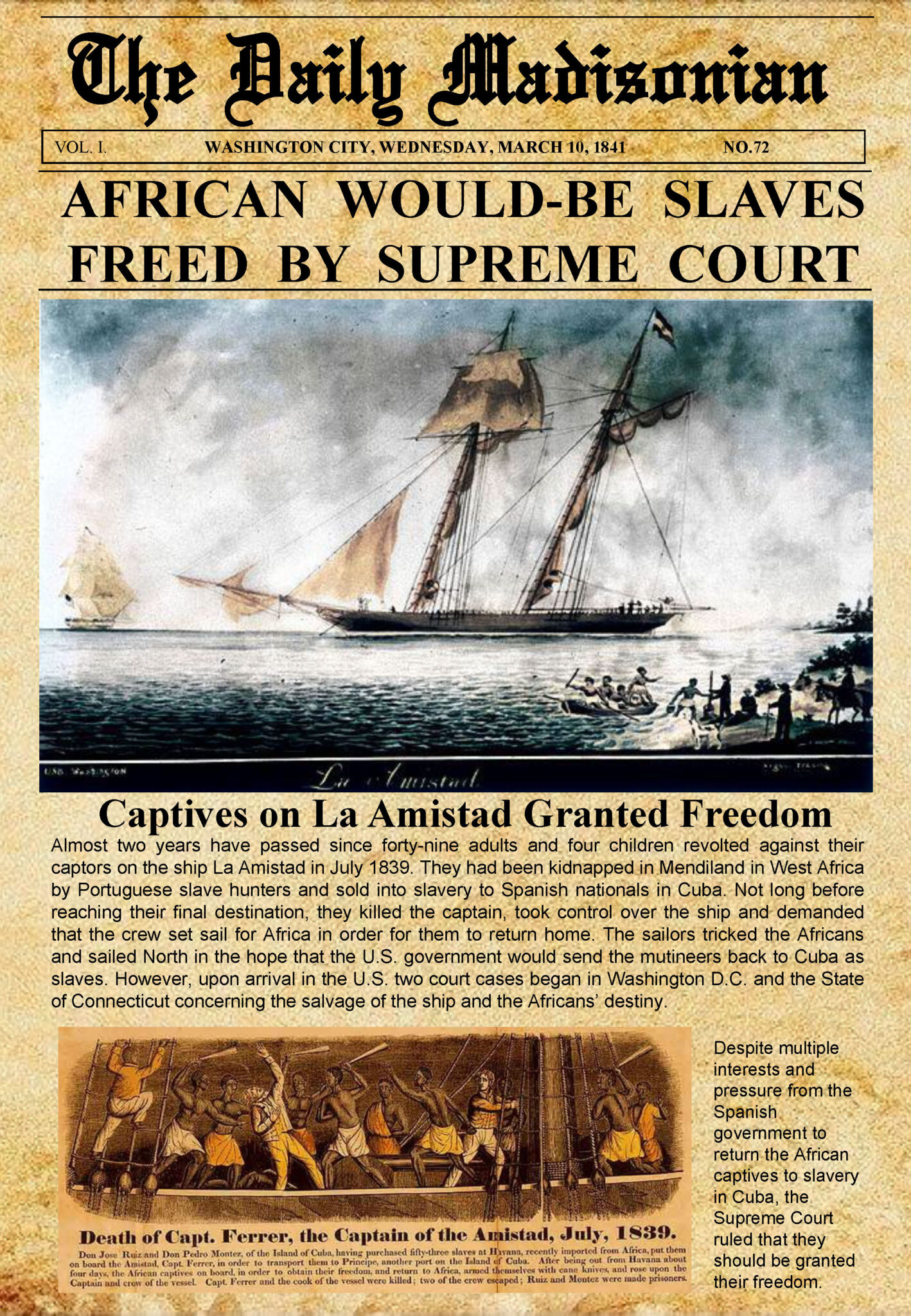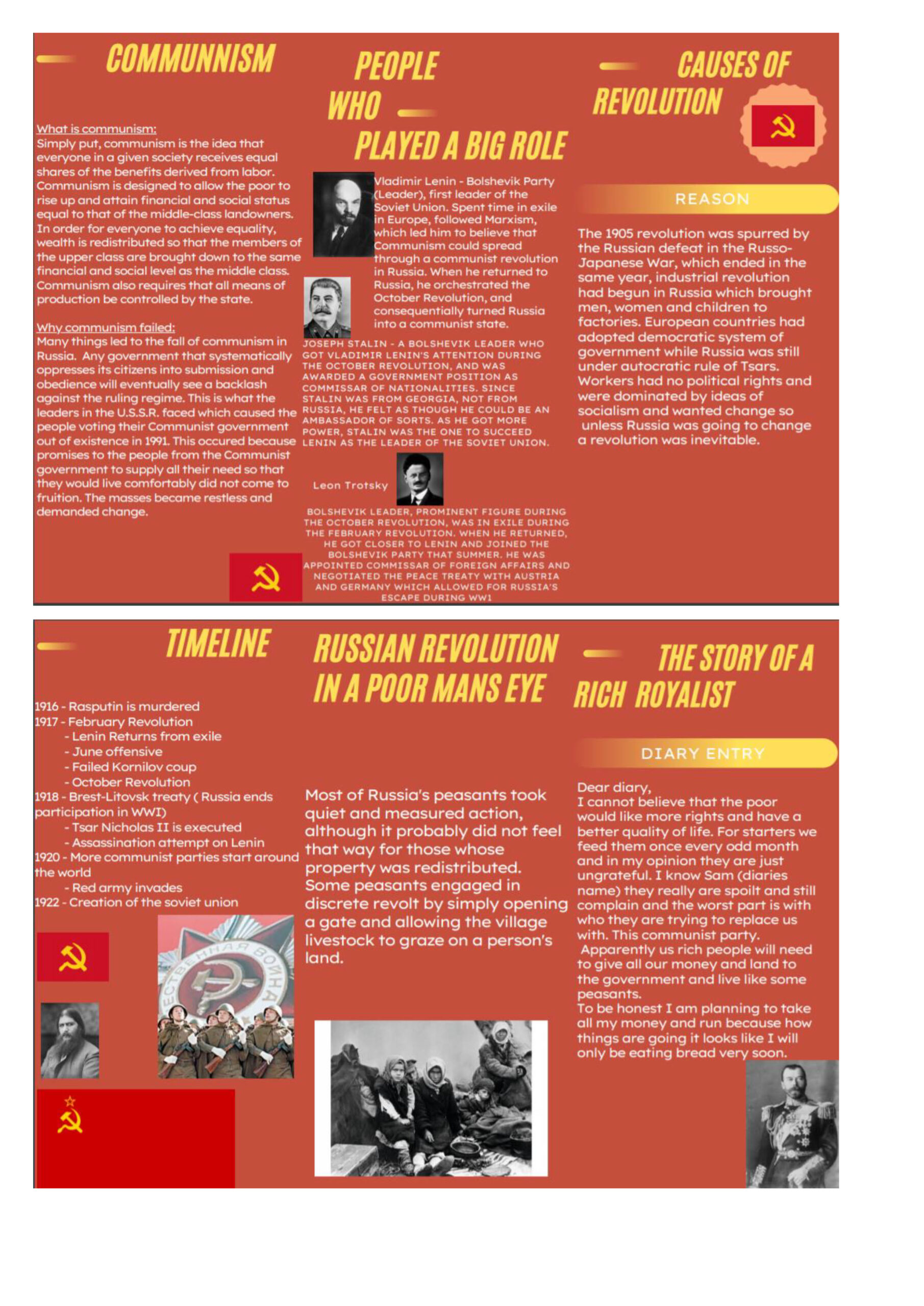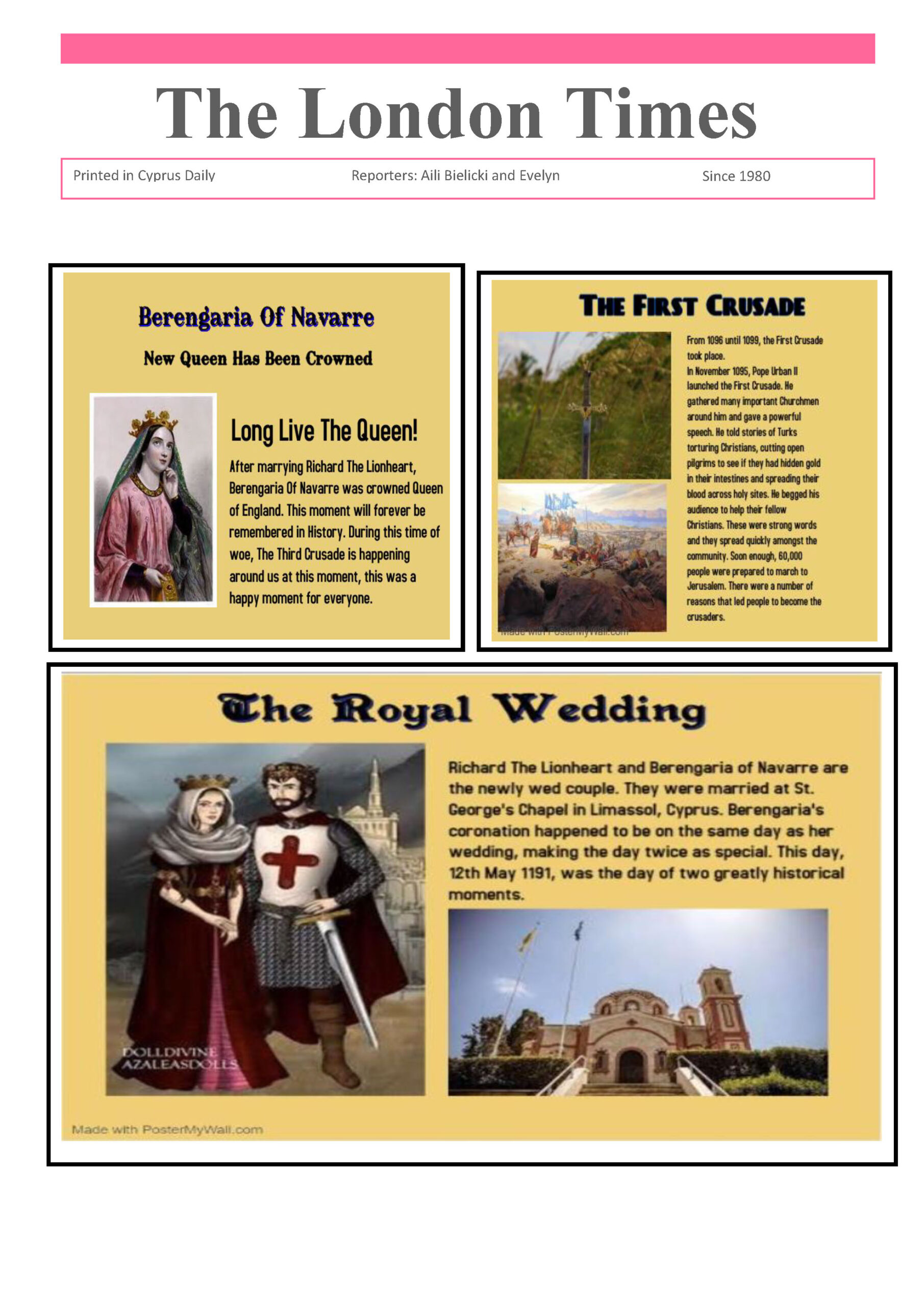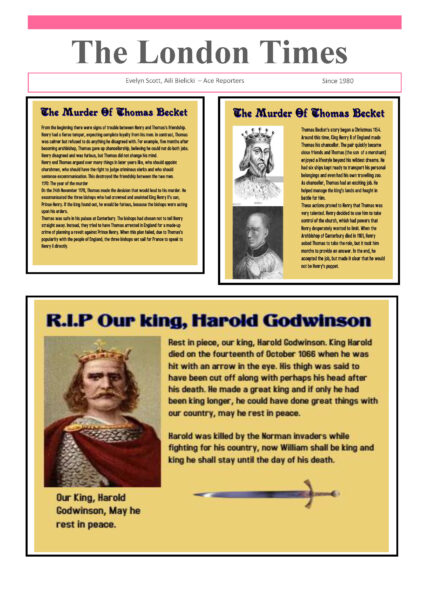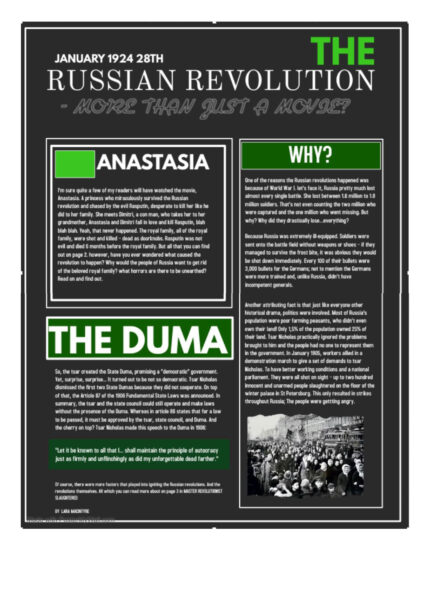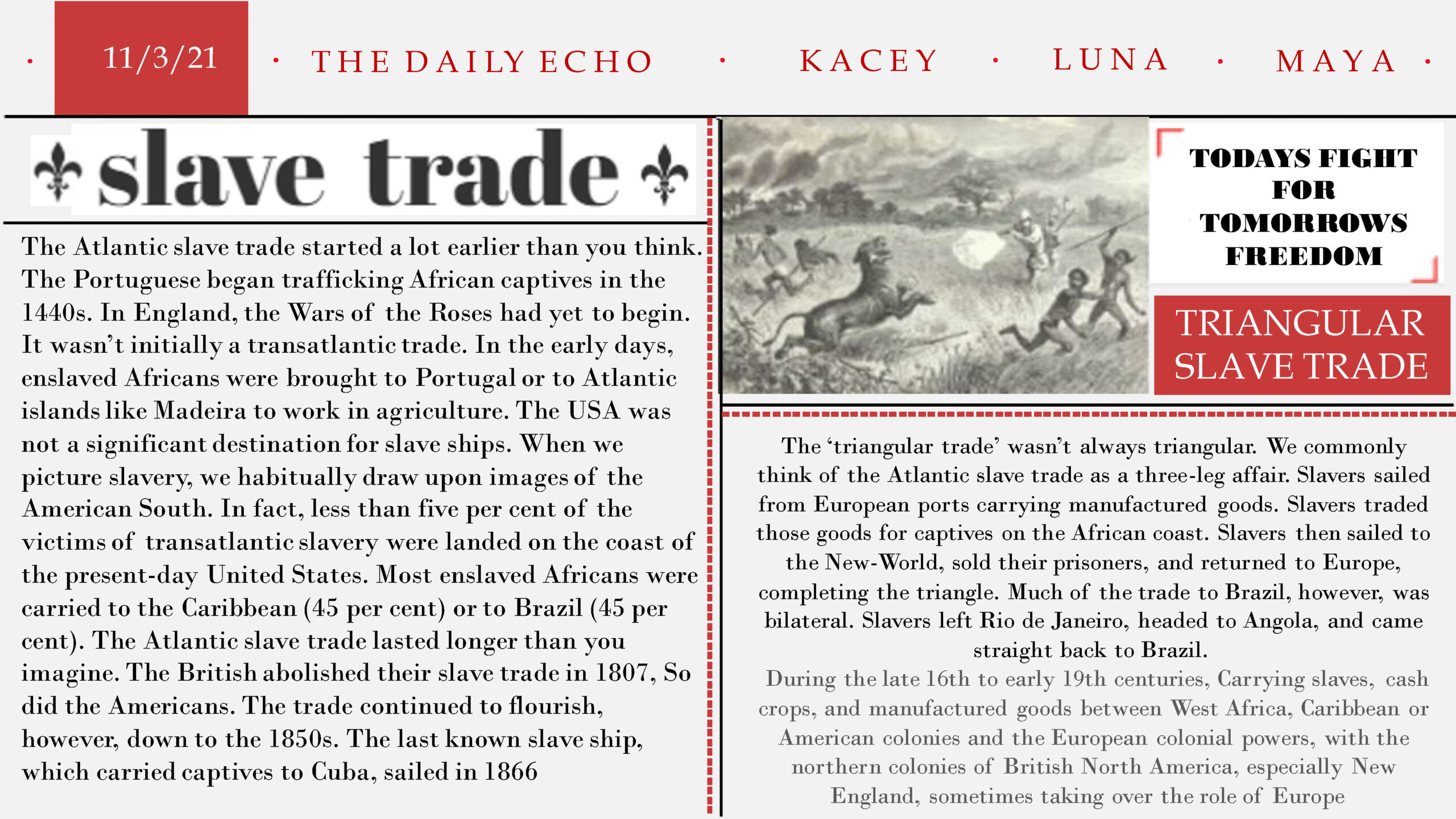RoundUp
Term 2 – 2nd Half | 2020-2021
Director's Note
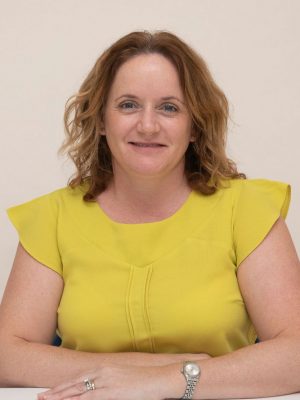
Some of our school families celebrated Easter a few weeks ago but my family has been really good and waited until the Orthodox Easter next weekend, to tuck into our Easter Eggs. I do know that some chocoholics have been very naughty though and decided to celebrate both!
In Cyprus and Greece, the Orthodox Church places greater emphasis on Easter than it does for Christmas and whilst I usually talk about the meaning of the season in my Christmas message to you, the message at Easter is just as important. Some religions don’t acknowledge Jesus as the Son of God or the Messiah, believing that he is yet to come to us on earth, some see him as one of the prophets and, in his teachings we can read an element of prophecy. All of us though can easily understand the message of the story of Easter in the sacrifice made by Jesus for others. For him, it was the ultimate sacrifice but we too can make small sacrifices in our lives to help mark the religious festival.
Our sacrifices could be as simple as leaving the last Crème Egg in the box for a friend or loved one rather than snaffling it for ourselves, it could be giving up a seat for someone on a bus, in a meeting or elsewhere. It’s heartening to see that in a different kind of way, many of our students are making sacrifices to help others. Some of our Sixth Form students want to sacrifice their precious time to run a debating club to help our younger children learn debating skills. This is on top of the very busy A Level schedule they have. Elsewhere some of our younger secondary students are giving up their time to educate others about environmental issues.
I’ve also seen the sacrifices that our teachers make willingly to make learning experiences for our students more enjoyable. Due to unforeseen circumstances, there was the possibility that the Book Week fun activities for our secondary students may have had to be postponed but, rather than let that happen, several staff and students stepped in to help the day progress as planned and enable us all to end what has been a very difficult spring term for us all in the best possible way, having fun with our friends in the TLC family.
Laura Wells | Director
Principal's Message

As usual it’s been a very busy term but we’ve finally made it to Easter. Like Miranda, our Head of Primary, noted in her piece, ‘Where has the year gone to?’
There’s the old adage ‘Time flies when you’re having fun’ and I guess from how fast the year has flown by that we must have had constant, huge fun in school. Fun is part of what makes learning enjoyable but we still have to consider the content and value of what we teach.
The Leadership Team at TLC has spent plenty of time this term looking ahead to the new school year and how we need to adapt to ever changing circumstances as well as new demands on what our students need to learn to be successful in life. We have exciting plans to make the great education we offer, even better in the new academic year starting in September. Over the Easter holiday I will be sending you further details of this and hope that you will be as excited by the possibilities it will brig as our team is.
I recognise that parents have very busy lives and very little time to read communications from the school but I would encourage you all to take an active interest in what we teach at TLC and how we teach it. We know that the children enjoy their school day but it would also be good to hear more frequently from parents about the education we offer. Whether it’s to ask questions to find out more or to question what we are doing and why, it will help you to understand what drives the objectives of the school and how you can help your child make the most of the opportunities presented to them. It will also give you confidence in the school, its teachers and the curriculum we are delivering so you won’t worry what the answer might be when you ask your child ‘What did you do at school today?’ That said, you can’t fail to be impressed at the learning the children have encountered as you read the following pages of this edition of RoundUp.
The quality of the work the children have produced exceeded even my high expectations.
I hope that you, your family and friends have a very happy and restful Easter and I look forward to welcoming back our exceptional students on May 10th
David Lewis | Principal

With Mr Lewis teaching at secondary from the first period twice a week, I’ve had the privilege of welcoming our Primary students as they enter school in the morning. I’ve also enjoyed supporting in the Year 5 mathematics class every Tuesday and, more recently, observing the students develop their knowledge and understanding of fractions. In Year 1/2 last week, I joined the class as they created poems about the colours of the rainbow using similes and expanded noun phrases.
As teachers, we are continually reflecting upon our practice and how we can deliver lessons in a way that is engaging and encourages critical thinking, creativity, collaboration and communication. I had to smile when attending a secondary mathematics class a couple of weeks’ ago – a student provided an answer to a question and was asked to consider if there was another way of solving the problem (their answer was correct). Their reply was “why would you want to do it another way when this way works!” By encouraging students to think of alternative approaches, we challenge their thinking and allow them to become the problem solvers of the future.
Having undertaken the Cognitive Ability Test and in receiving their options booklet today, the Year 9s will now have the Easter break to consider the subjects they would like to study from September. Meanwhile, our Year 11s have been implementing the advice provided, following their spring internal assessments, so that they can provide further evidence to support the award of their grades as part of the summer examination series. The class have been working with mentors who will support them as they make their choices post Year 11.
I’m always heartened to hear of students wanting to give something back to others and that is the epitome of a TLC student. I’d like to thank students within Sixth Form for stepping in to provide support to the Year 11s at short notice with the delivery of activities to celebrate World Book Day and to the Year 11s for all your preparatory work, supporting Ms Ally – a great example of collaboration!
Wishing you all a safe, enjoyable and restful Easter break.
Catherine Lewis | Head of Teaching and Learning
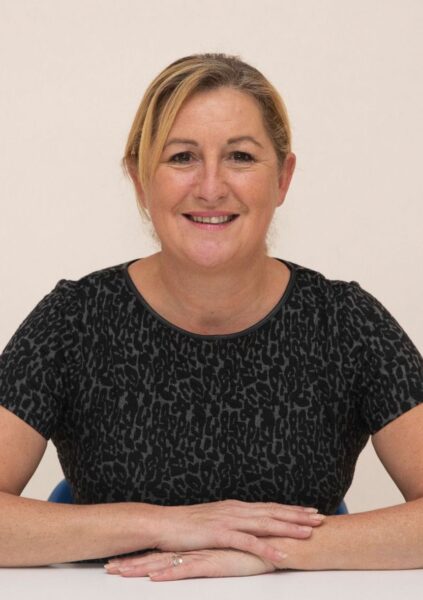
Congratulations to everyone for a very successful return to school following lockdown. How the weeks have flown by.
I am very proud of all at our Secondary school at TLC for their ability to adapt and change. This is a fundamental skill that we are all beginning to master.
It has been two academic years of change in many ways; working on line, missing out on social gatherings; texting to shop and adhering to protocols that were only imagined in science fiction films and books.
Parents, teachers, staff and students have worked together to maintain the high standards of the school and the students have sat assessments to identify their next steps and areas of development since returning. They are now working hard to fill any gaps in their knowledge.
To end the term with rewards, the students have enjoyed a medley of activities on the last day, celebrating their successes and dressing up as their favourite book character.
I wish you all a Happy Easter.
Tracey Hewitt | Head of Secondary
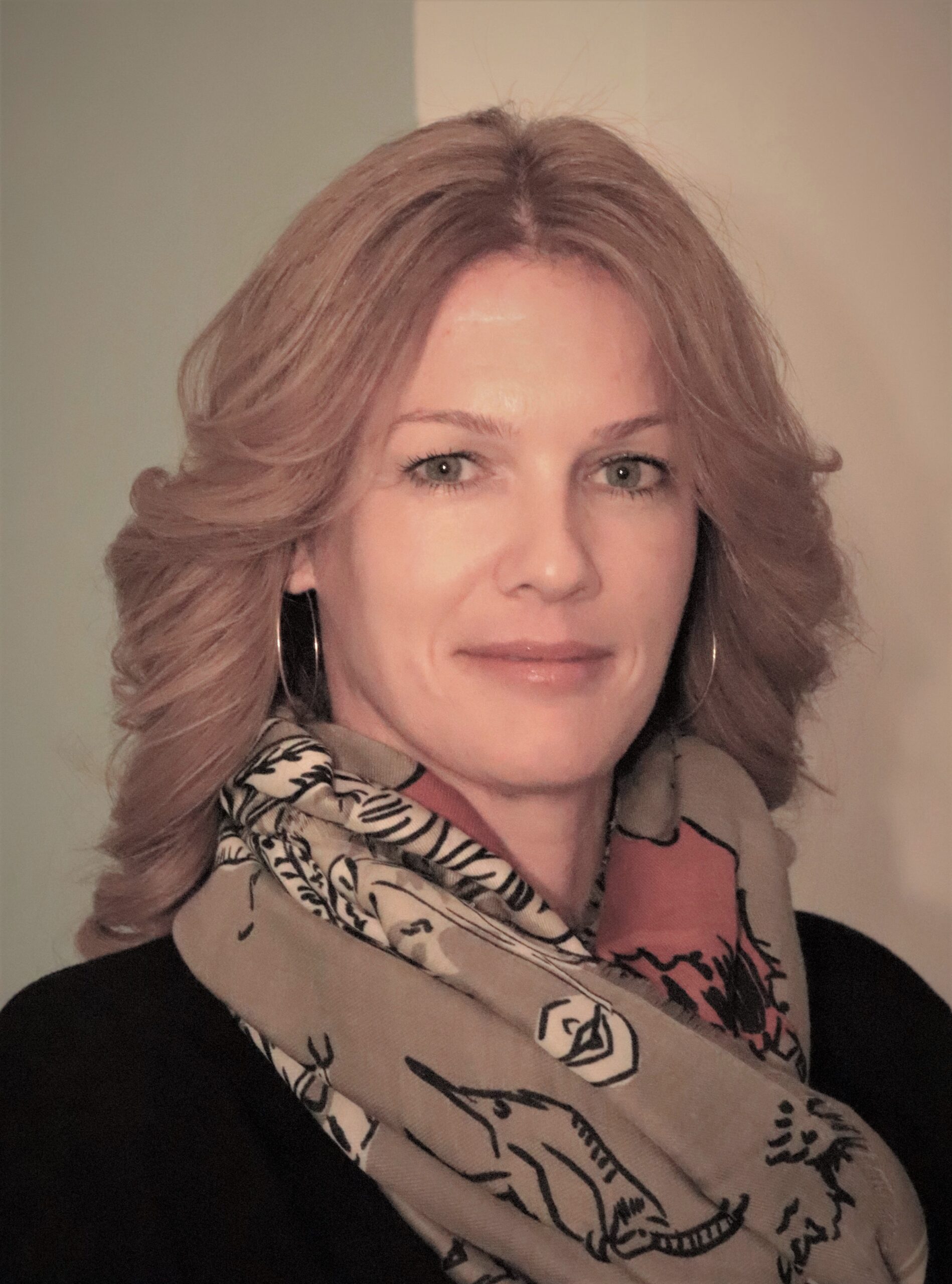
This half term has flown past and has been packed with learning opportunities and activities for all our primary students. I can’t believe that the last stretch of the year, summer term, is almost here. How fast has this year gone by?
I am proud to say that school life at TLC continues to be a joyful and happy learning experience for our pupils, even with the current Covid measures and restrictions in place. I see students daily entering the school gate, running past my classroom with a big smile on their face and often hear their disappointment when it’s time to pack up at the end of the day.
At the beginning of this term, TLC celebrated Carnival for the first time in school and it was a successful event. Students were so excited to show their favourite outfits to each other and KS1 even had a catwalk parade! Am I allowed to say that our teachers loved to dress up too, maybe even a bit more than our pupils? The day was filled with lots of fun activities and students have requested that this day can be an annual day on our TLC calendar.
The Covid restrictions (no football/ contact sports) forced teachers to think of creative ways to allow pupils to enjoy a meaningful playtime. Elastics, rackets, stilts and hula hoops were introduced and it’s fair to say that they’re a great success. It’s wonderful to observe the social interaction, imagination and cooperation between our pupils, especially when they are super creative in inventing games with the available equipment!
Behind the scenes, Ms Toni and Ms Carol, our librarian, have spent lots of time planning the highlight of this term, our annual Book Week. I can honestly say that every activity was carefully chosen and the outcome was superb! From the ‘Cereal Box Book Competition’, ‘Story Book Artefacts Museum’, ‘Book Character Dress Up’ to ‘Guess the Teacher Photo Competition’… every activity was thoroughly enjoyed by students and teachers and therefore I must take this opportunity to thank Ms Toni and Ms Carol for organising this fantastic event. We also discovered that Mr Brian, our bus driver, is a marvellous poet and we were very lucky to listen to some of his poems about his view of ‘Life at TLC’.
Of course we couldn’t end the spring term without having a bit of Easter spirit. Normally we have the PTFA coming into school around this time of the year to help us arrange the annual Easter Fair, but again due to the Covid restrictions, it was up to the teachers to organise some Easter activities and a taste of chocolate fun in class instead.
I would also like to highlight the achievement of our primary school being Covid free up to now and hope we can keep it this way. Teachers have been tested negative week after week and are committed to adhere to restrictions until further notice.
Lastly, I would like to thank our primary staff for their positivity, flexibility and creativity in their teaching methods during these difficult and uncertain times.
For now, this only leaves me with wishing all students, parents and colleagues a restful and relaxing Easter break.
See you all back in May!
Miranda Matthee | Head of Primary
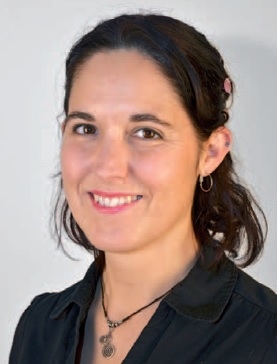
It has been another busy and fun filled half term in Early Years. Learning through play is so important for this age group and incredibly motivating. The children are busy playing but already the children in Kindergarten are learning their letters and Reception class have learnt to read and write!
Of course we focus on a lot of skills in Early Years, not just academic learning. The most important being the ‘Prime Areas’ of personal, social and emotional development; for example, learning self-confidence and self-awareness, managing feelings and making relationships. We had two new students join us in Reception Class this half term and it was lovely to see how all the children welcomed them into our Early Years family and how quickly the students settled in. The children certainly make us proud.
I wish all the children and parents, a very restful break and look forward to seeing all their happy faces when we return in the Summer Term.
Toni Hayden | Head of Early Years
A Fairytale of Melodies
A wonderful performance by TLC students, thank you parents and students for your participation. Thanks once again to Ms Outram and Ms Clare for hosting another amazing concert.
TLC World Book Day Celebrations
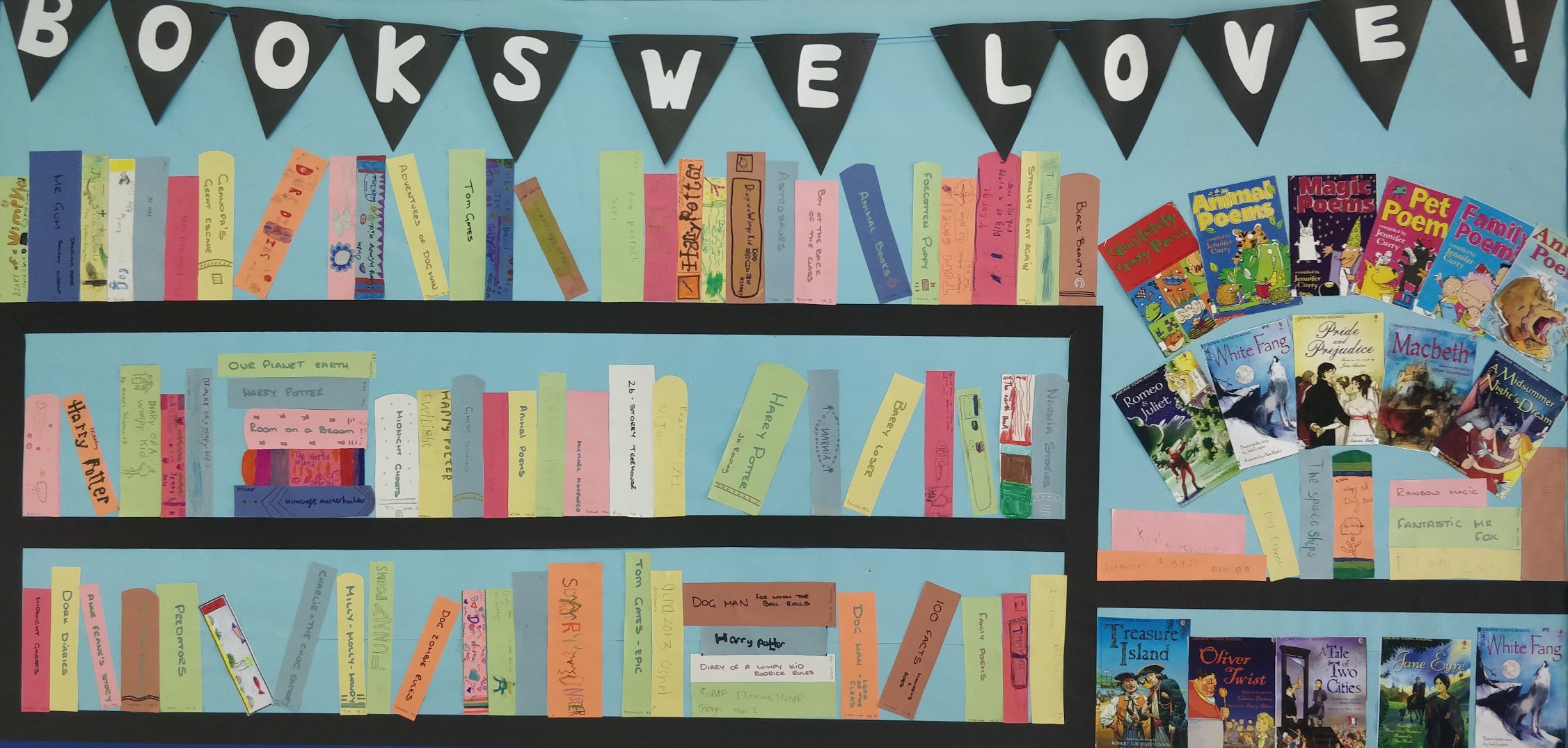
TLC Book Day celebrations which took part during the course of this week enabled children to take part in a range of exciting educational activities and competitions to inspire and encourage reading and a love for books. The cereal box books that were submitted were absolutely phenomenal! Photos of teachers and staff hiding behind their favourite book were on display for children to enter the ‘Guess the Teacher’ competition, our very own Mr. Brian read his fabulous poems to the children and the show stopper costume parade took place on Thursday, where children got to show off their fabulous costumes on stage! Thank you Ms Toni, Ms Matthews and team for your hard work organising this event and for making this week such a wonderful experience for our students. Thanks also goes to Ms Hewitt and Ms Ally for organising the fun filled activities that took place at TLC Secondary. A special mention to Children’s Books Cyprus too, who supported our event by donating ten vouchers for our best dressed winners at Primary.
Our grateful thanks is also extended to our parents for your support!
Guess the Teacher Competition
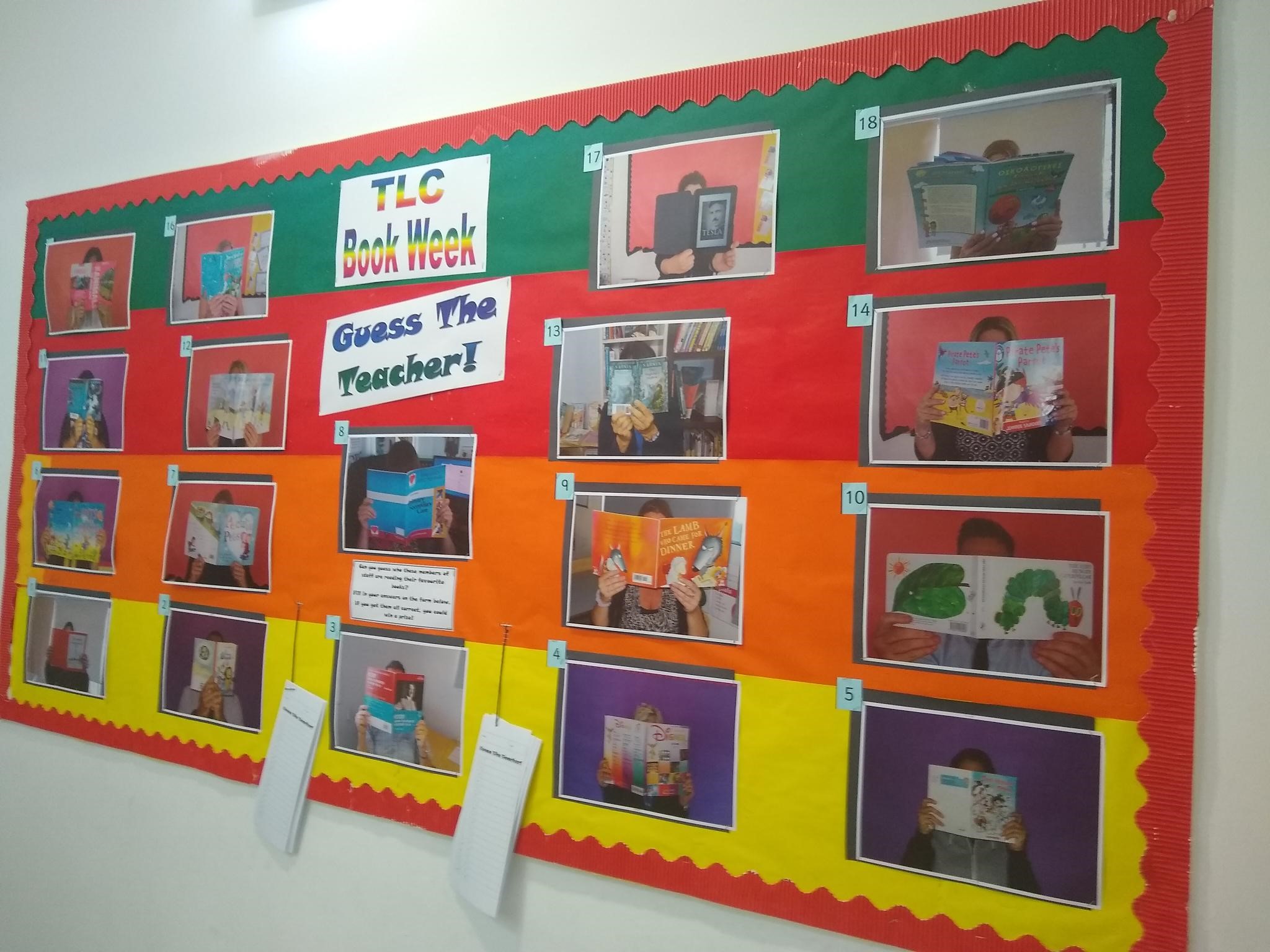
Cereal Box Book Competion
The Costume Parade
Secondary Book Celebrations
Due to Coronavirus restrictions, this year our Secondary students have been unable to visit Primary and Early Years to read to them; something which has become a traditional part of our Book Day celebrations. However, our Year 7 students have put their newly developed skills using Teams, to record and share themselves reading a story for our younger school members. They have produced some lovely work, and more importantly, they have set a great example for younger children by demonstrating a love of reading and the joy an act of kindness can bring.
Year 8 Drama
English/Art Departments KS3
In preparation for this year’s Book Day, our Key Stage 3 students have been busy combining skills from English and Art to create book covers. However, these are no ordinary book covers. Students have been exploring symbolism in both art and language, and how artists frequently use symbols like colour and metaphor to express a deeper meaning. They were then set the challenging task to create a symbolic representation of who they are, and their life so far through an illustration, title and blurb. These were all then combined to create a full book cover. Not only has this provided a great learning experience for students, it has asked them to reflect upon how they perceive themselves and express that to the outside world. It has been a great pleasure to see such diversity in the work created, and in many instances, given English teachers a greater insight into our students’ inner world.
What are teachers reading?
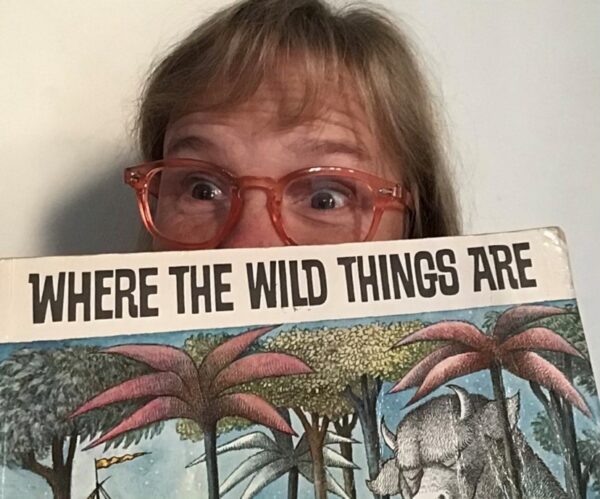
My favourite book as a child was, ‘Where The Wild Things Are’ by Maurice Sendak. A story about a little boy called Max who is sent to his room for being naughty and imagines himself on a wild adventure. Monsters and being afraid are very, very real when you’re small, so I can remember the thrill of the terrifying wild things being afraid of Max who was just a little boy. As an adult, I am now very interested in the interplay between the words and the beautiful illustrations. There are some story books made entirely from pictures such as, ‘The Snowman’ by Raymond Briggs or ‘The Arrival’ by Shaun Tan, but most books have a written narrative with a set of complementary illustrations. Some narratives use the illustrations and the words to take turns and tell the story, but there are some books where the text and the pictures clash.
Books such as, ‘Haunted House’ by Jan Pienhowski require more advanced literacy skills from young readers, because the written narrative and the pictures are very different. Perhaps you have heard of the book ‘Where The Wild Things Are’? I wonder if you have ever noticed how the illustrations increase as the story progresses until we’re completely immersed in Max’s wild adventure as the words disappear, while the pictures fill the pages all the way to the edges? It’s like a crescendo that builds as the wild rumpus starts, then dies down again until all the pictures disappear and the book finishes with a single line in reference to Max’s supper waiting for him at home.….’and it was still hot’.
Miss Zoe

My favourite book is The Grapes of Wrath by John Steinbeck. For her IGCSE Literature exam, our daughter read ‘Of Mice and Men’ by the same author which I didn’t enjoy but The Grapes of Wrath is like a grown up version of ‘Of Mice and Men’. It’s the story of a family, the Joads, during the great depression who are struggling to survive and who are duped into travelling to California in search of work which turns out not to be the dream they expected. Many more people had the same idea and when they arrive they find that there is far too little work for them. They get embroiled in the many conflicts as people fight for survival and, unfortunately the book ends badly for the main character, Tom Joad. It is a fictional account of what did happen at the time and is a poignant story of desperation that turns to hope and then to dust. The book won the Pulitzer Prize for Fiction in 1940.
Mr Lewis
Year 8 Drama
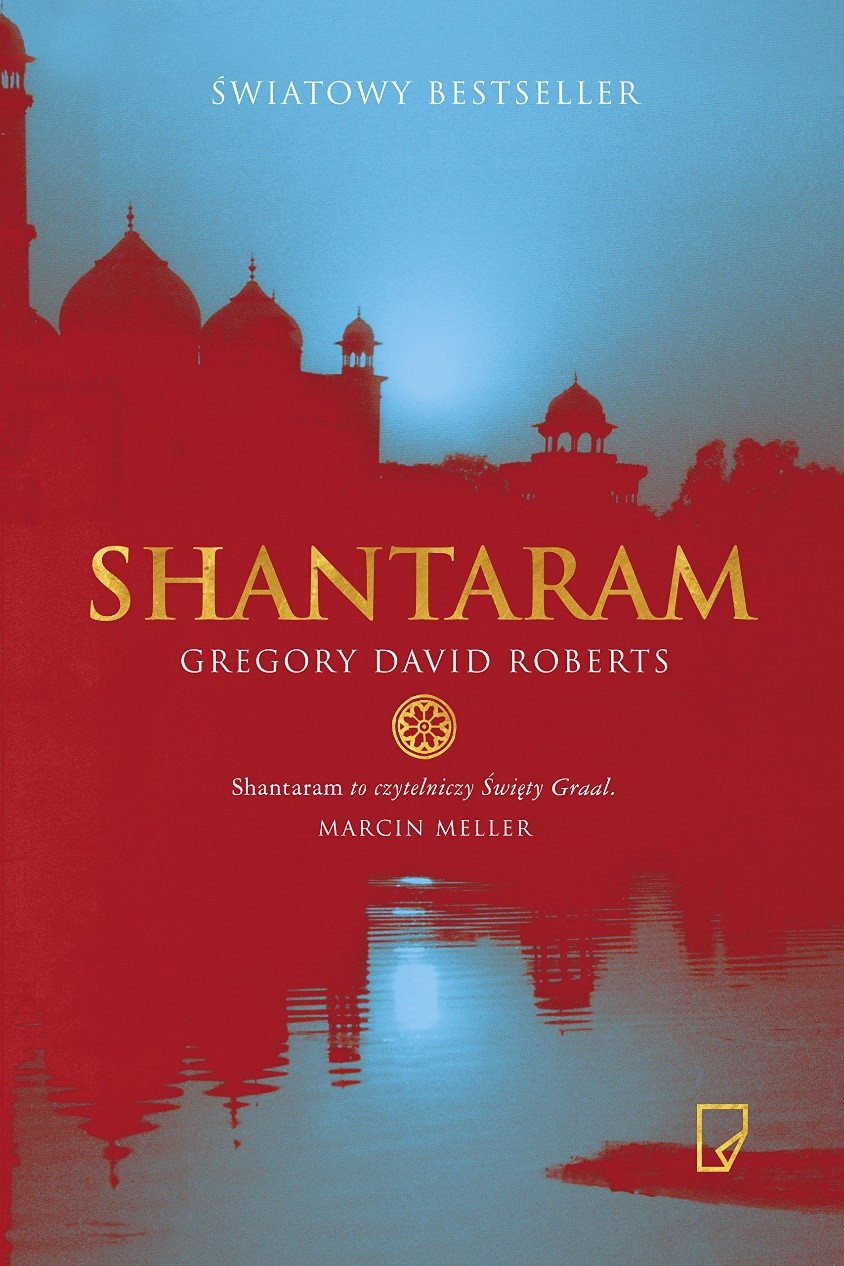
Shantaram is a novel set in the slums of Bombay – India. It tells the story of an escaped prisoner from Australia who finds himself hiding from the law in the busy, eccentric and loving community of Bombay.
Gregory David Roberts wrote this novel as an embellished version of his own life and it is said he wrote the book 3 times whilst in prison in India. Everytime he thought he had finished the script was confiscated and he had to start all over again.
His name ‘Shantaram’ means ‘Man of Gods’ Peace’ in Sanskrit and was given to him by the family that helped him during his time in Bombay. Having arrived in India Shantaram is faced with a fire that rips through what will be his home and he sets up a medical centre to help the people there who have no clean running water and very small spaces to live and work. He experiences Leprasy, cholera whilst learning the local language and cultures. Falling in love with a Swiss American woman he gets involved in the Mumbai art scene and through trafficking offences ends up in Mumbai’s Arthur Road Prison where the story continues of him being badly treated, suffering squalid conditions and getting involved with the Afghan mafia who eventually help him to escape to Sri Lanka.
Sri Lanka is where the sequel is based and I am looking forward to reading it as soon as Amazon deliver it! I would recommend this book to pupils aged 16 and over and especially those of you who are fascinated by other cultures, travel and communities.
Miss Clare

My favourite childhood book was Heidi which I read over and over. The story was about a young girl who lived in the mountains in Switzerland with her Grandfather. They lived very simply on farm food.
Clara, who was disabled, and Peter were her two dear friends. Heidi often visited Clara in town were Clara had a pet monkey who caused havoc which made me laugh so much.
Memories!
Miss Carol
Year 8 Drama
The Cyprus Bus Driver By Mr Brian
an early morning rise.
I’ve made it to another day,
oh what a nice surprise.
A cup of tea before I go,
then it’s time to turn the key.
Back on the road once again,
wondering what’s in store for me.
The children should be waiting,
as I drive up to their house,
and as it’s early morning,
they’re as quiet as a mouse.
One by one I pick them up,
‘come on don’t make us late.
I’ve told you many times before,
be waiting at your gate’.
The journeys almost over,
just one more child to go,
but where on earth has she got too,
I really want to know.
Then I see her coming,
scurrying down the street,
she knows she is in trouble,
so she offers me a sweet.
I let her off as is my way,
and told her not to worry.
Now quickly find a seat I say,
we’ve really got to hurry.
The first part of the day is done,
as they all pile into school.
I make sure that they’re never late,
that is my golden rule.
No time for a quick break though,
there’s plenty more to do,
we’re on the road to Multiplay,
PE for the Year 8 crew.
We now can have a breather,
as the children play their games.
There seems to be a lot of them,
I can’t recall their names.
Back and forward throughout the day,
and the hours do fly past.
It’ll soon be time to have my lunch,
which is normally quite a blast.
I go into the staff room,
that’s where I eat my food,
there’s always lots of teachers,
usually in a good mood.
I like to have some banter,
It’s all a bit of fun.
They all know I mean no harm,
when the day is done.
At two o’clock the last bell rings,
the small ones are on their way,
and then it’s to the big school,
it’s near the end of day.
I tick the list just to make sure,
they all get on the bus,
there seems to be a lot more noise,
but I don’t make too much fuss.
There’s always lot of chatter,
but some play with their toys.
It always seems a happy place,
they’re not bad girls and boys.
Soon the day is over,
as I walk back through my door,
the life of a school bus driver,
is a busy one for sure.
Why do we read? Is reading a privilege?
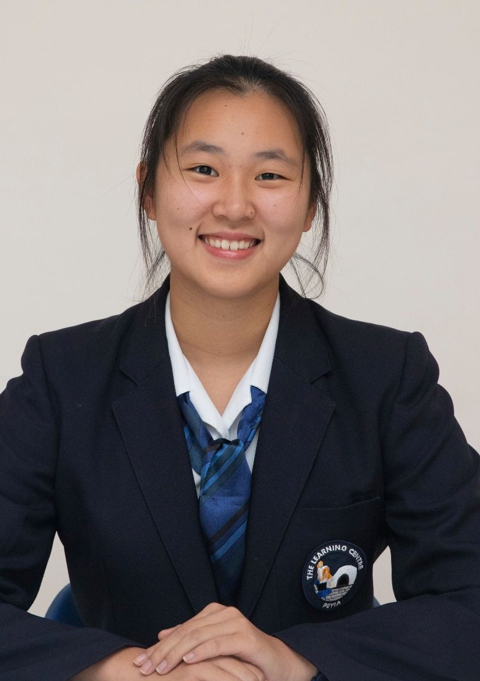
By Annie Lin Y12
Books, reading and learning, are probably some things that you are all quite familiar with. We read for knowledge, but also for pleasure. Though reading seems like a right to everyone and it definitely should be a right, sadly it is indeed a privilege as it stands.
In some parts of the world, especially in developing countries, the illiteracy rate is significantly higher – on average 70%, compared to industrialised countries which have an average of 15%. Poverty is one of the major reasons for this: the practical difficulty of financial constraints in developing countries leads to reduced access to books, as well as a lack of education provision among the population.
Other than practical difficulties, countries also actively ban certain books. This practice is a form of censorship, from legal, religious, or political motives. An example includes the British Indian novelist Salman Rushdie, who because of his controversial novel The Satanic Verses published in 1988, received death threats against him. The novel was in part inspired by the life of Muhammad, and in the Islamic community, some considered it as somewhat impious, and Rushdie was accused of misusing freedom of speech. The novel was subsequently banned in many countries with large Muslim communities, including India, Iran, Bangladesh, South Africa, and more.
Still, people living in what may be considered a modern, open, developed country also experience difficulty in reading. Notably, on average, more than 50% of the prison population is illiterate, and reasonably it is suggested that there is a link between low literacy and crime rate. Furthermore, dyslexia, a learning difficulty caused by problems in reading, writing, and spelling also make reading books difficult. According to the British Dyslexia Association, individuals with dyslexia in the UK is around 10%, while globally, Dyslexia International estimate the number to be around 5-10% — which equates to around 700 million people worldwide.
As all of the data and examples show, we are not only fortunate enough to have access to books, but also have the ability to read.
Perhaps imagine your life without any books?
The number of places we go, the number of people we met in our lifetime is limited, so to open our eyes to the rest of the world, books are one of the mediums. It allows us to be exposed to a variety of perspectives, and perhaps ones that are not so in line with our own, which makes us somewhat more open-minded to new ideas and concepts. Books can also be a place to record and share experiences, thoughts, and understanding: for the fortunate and privileged to acknowledge the ugly side of the world, whilst also give hope to the poor and the less fortunate to see the bright sides of the world.
Early Years - Messy Art Day
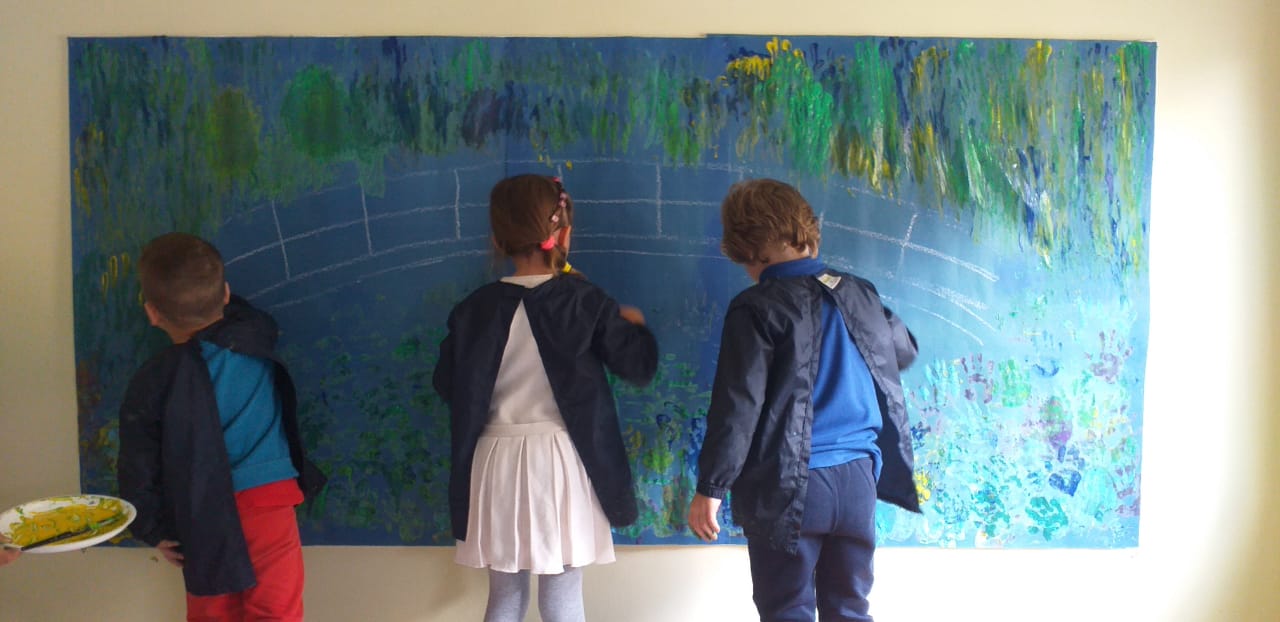
In Early Years this half term we have been learning all about colours! All the children have been exploring colour mixing and Reception Class have even learnt primary and secondary colours and have been doing ‘colour sums’!
Reception class have also been learning about some famous artists. The children have really enjoyed looking at and evaluating the work of Piet Mondrian, Jackson Pollock and Claude Monet. They have made their own art work in the style of these artists
Last Friday, all of Early Years had a Messy Art Day where we spent the whole day painting, colour mixing, doing collage and junk modelling. The children even worked together to recreate a giant version of Monet’s Water Lilies using hand prints and finger painting. What a beautiful masterpiece!
Ms Toni
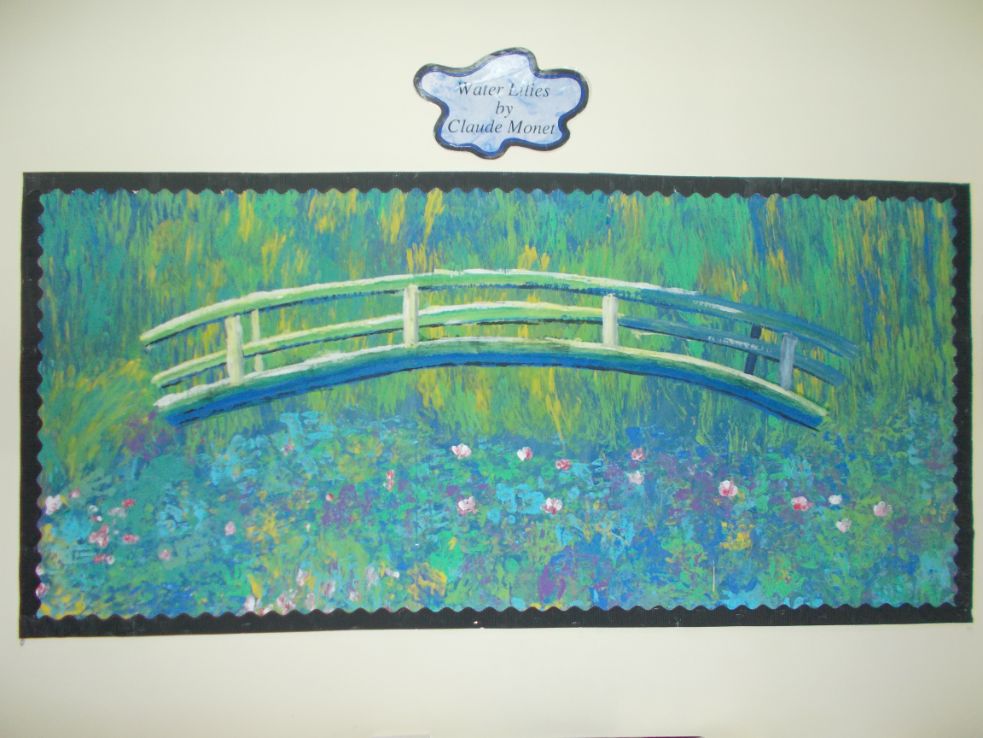
Year 1 - Identifying and comparing materials in science
How many different materials can spot in the classroom and can you describe how these feel? From which material should we build a boat? What is the thickest liquid you can find in your kitchen? Which material would you use to make your own pet toy? What stuffing would you use?…
These were some of the questions Year 1 had to answer in their science lessons this term. With a hands-on approach, students were able to identify, classify, compare and investigate different materials and their properties. Designing and creating their own pet toy was their favourite lesson and I’m sure all students were extremely proud to show off the result to parents and siblings!
Ms Miranda
Year 1 - International Day of Forests
Year 1 are very lucky as they were given Mastic seedlings by the Forest Department to celebrate International Day of Forests. Students were very excited to learn about the different parts of plants and their functions. They all enjoyed transferring these tiny baby trees in bigger pots and were very proud to take them home. All students promised to take good care of their gift and will plant the seedlings in their garden once they have grown a little bigger.
Ms Miranda
Year 1 / 2 - The Grand Bug-apest hotel
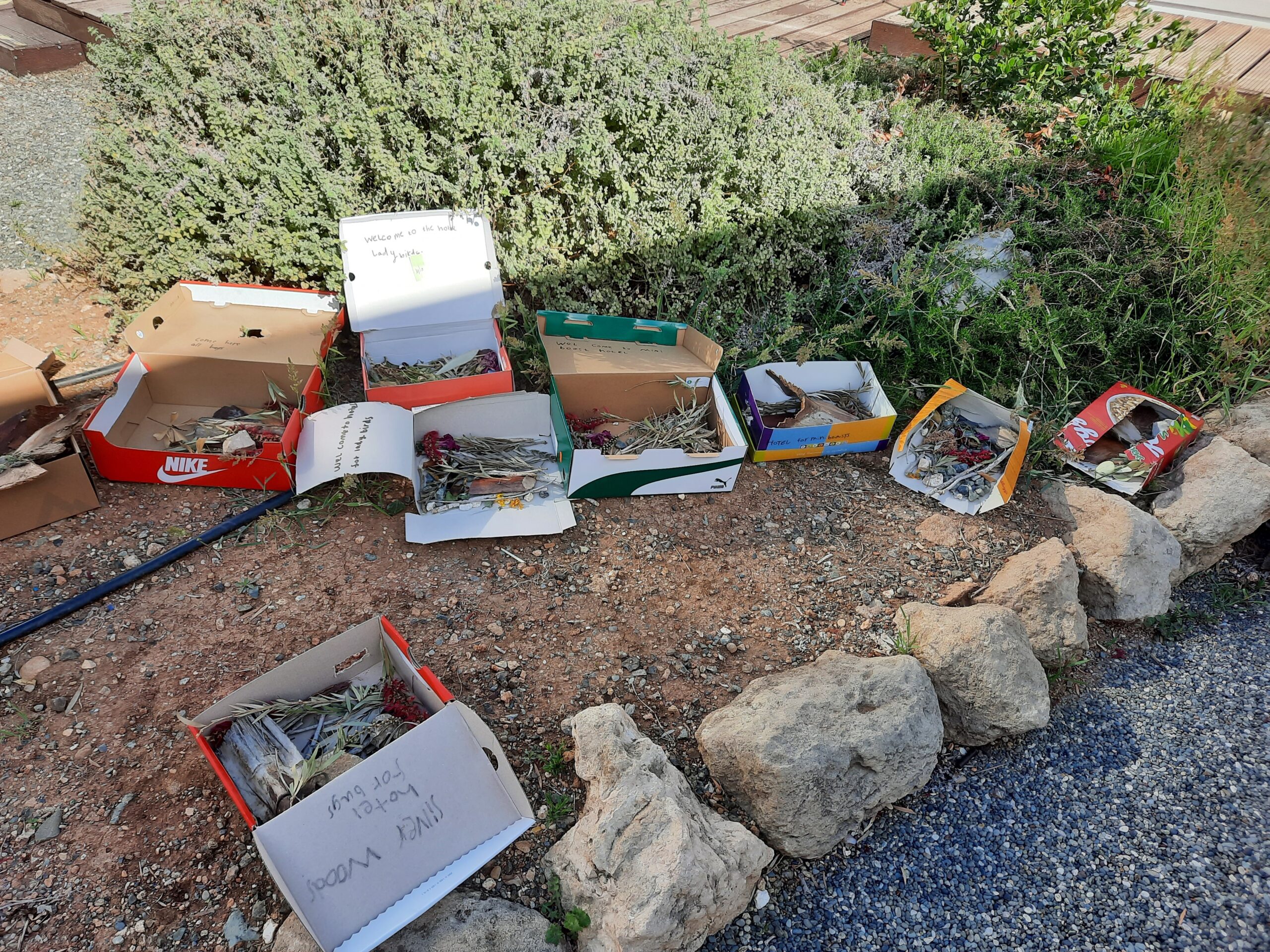
This term Year 1/2 have been learning about Food Chains and Animal Habitats in Science. We learnt all about the microhabitats that mini-beasts live in and how they provide them with all the food, water, shelter and protection that they need. We created our own mini-beast hotels from natural materials we found around school. We made sure to include food and shelter. We are now eagerly awaiting our first tourists of the season!
Ms Louise
Year 2 - Spring has sprung in Year 2
We have been learning about plants in Science this half term, and what they need to survive and grow. We have planted cress seeds and did an experiment to see how varying the conditions the plants were kept in would affect their growth. We also planted beans hydroponically and are keeping diaries of the beans’ growth, and predicting what will happen to them each week. These will come home so the children can continue observing them over the holidays! In History we carried on with our Kings and Queens topic, and the children have enjoyed learning about Queen Victoria and Queen Elizabeth 1, who used to throw shoes at people when she was cross! We have also created spring flower artwork and enjoyed reading the Lighthouse Keeper series during book week.
Happy Easter/Καλο Πασχα from Year 2!
Ms Emma
Year 3 - Vikings and Rainforests
As part of our History topic on Vikings, the children in Year 3 wrote a story about the Viking hero Beowulf and his battles with legendary monsters. The children also designed and made Viking helmets, making sure not to include any horns!
Whilst learning about the Rainforest, the children in Year 3 studied deforestation and the impact this is having on the rainforest. They wrote information texts explaining why deforestation is occurring and how we can help to reduce the effects of deforestation on our planet.
Mr Lines
Year 3/4 - Science
Year 3/4 were learning about Louis Braille and the sensory, tactile language that he invented for the blind and those with impaired vision. Students created their own messages in braille using the six dots system with glue to emboss the surface so that the dots were raised and could be read with the touch of a finger.
Miss Debbie
Year 3/4 Australia Art
We have learnt about the Australian Aborigines and their ‘Dreaming’ art. Students have begun to make Aborigine musical instruments such as the didgeridoo out of papier-mâché and paint.
Miss Debbie
Year 4 - Our Big Book of Fears!
This half term in English, Year 4 have been studying the features of recounts. The children created a class ‘Big Book of Fears’, which recounts where their fears and phobias originated from. From snakes to spiders and bed bugs to bees, Year 4 shared some of their scariest experiences. The students then shared their book with some of our Key Stage 1 children during Book Week and they were highly entertained by Year 4’s recounts.
Mr Richards
Year 5 - Maths and Science
Another term completed! Year 5 has been a veritable hive of activity; we’ve continued our journey with Stanley at Camp Green Lake, stretched and challenged our minds in Maths and the students can take pride in the fact that they have been working extremely hard on a variety of other topics and projects.
We have been successfully propagating geraniums as part of our Living Things and their Habitats topic in Science and creating Aztec-inspired art by replicating sunstones and mosaics which in turn inspired us to create a poem to practise our similes and metaphors in English. We’ve also enjoyed designing and carrying out different experiments including creating new products like casein plastic and by observing a very exciting irreversible change using bicarbonate of soda, vinegar, a water bottle and a balloon!
We honed our new-found coordinate skills in map reading when Miss Sam challenged the class to a treasure hunt around the school and successfully completed our Mission 500 stories. We’re all looking forward to new challenges and learning opportunities after a well-deserved rest over Easter.
Miss Jennie & Miss Sam
Year 6 - Science
Science lessons have tackled the classification of animals, plants and micro-organisms. Students are now able to identify broad groups of organisms before classifying them using the much more detailed Linnaeus classification system. The Linnaeus classification system shows how closely organisms are related to each other. Children were able to group five mammals (including homo sapiens) into an evolutionary diagram. Pupils can now work out the binomial (genus-species) name for each organism.
We experimented with micro-organisms, identifying the chemical change that takes place in yeast (known as fermentation) which is a process by which microbes break down complex sugars into simple compounds like carbon dioxide and alcohol. We also had an opportunity to grow mould under ideal conditions.
Using our artistic abilities, we created three dimensional animal heads of rhinos, elephants and stags. We started with a skeletal frame which we filled in and covered with papier-mâché.
Ms Evie
Year 6 History
In History we investigated World War One and discovered what led up to the start of one of the largest wars in history. We explored what life was like for the soldiers on the front line as well as what life was like at home for the women and children who kept Britain running. Deep discussions about the significance of events within the war and how alliances between countries, power-hungry empires and the assassination of an archduke began WWI, kept the classroom conversations and debates buzzing!
We completed our topic of World War 1 with students building 3D models of trenches using recycled materials.
We are now preparing for our last term in Primary school before moving in September to our secondary school.
Ms Evie
ESL with Ms Asima
Primary Music with Mrs Outram
Primary Children are Boomwhacker Maestros!
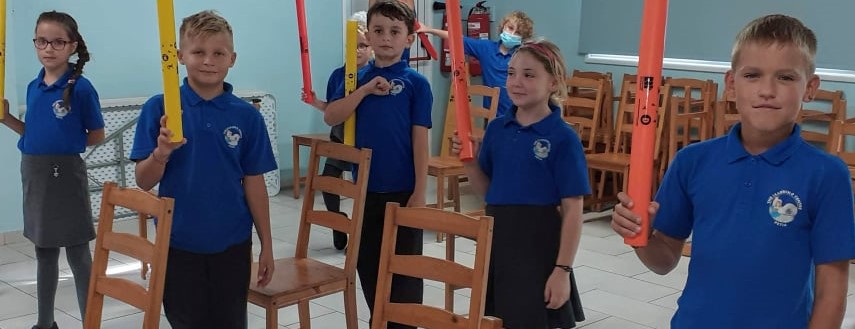
All Primary classes including Early Years, have been having fun with boomwhackers this term.
Boomwhackers are a type of “tuned percussion” instrument and when hit on a surface create a sound. The boomwhackers are pitched the same as each note in the C Major scale and we are lucky enough to have three sets at school.
Each note is also a different colour, which helps when the children are following their musical score, especially the younger ones. It is a fun way of teaching many musical skills such as, rhythm & pulse, following a score, group performance and listening skills. The children have played along with many different genres of music including film themes as well as pop and classical music.
Mrs Outram
Year 5 Music - Versatile Vocalists Rocking the School
Singing is a very big part of the Primary National Curriculum for Music. The children are encouraged to sing a variety of songs in as many different styles as possible. Year 5 have focused on the “Rock” genre of music this term, learning songs by bands such as Guns N’Roses, Bon Jovi and The Scorpions. This week we went “Electro Rock” with the Imagine Dragons’ song “Radio Active”. As you can tell from the enthusiastic singing, the children have really enjoyed rocking the school! Well done Year 5
Year 7 & 8 - Music with Mrs Outram
This term Year 7 have been studying a number of popular music genres: Blues, Rock & Roll and Soul. Through listening tasks, they have become familiar with each style’s sound and structure. They have studied the history of each genre and about iconic musicians and singers. These have included, Buddy Guy, Elvis Presley, Chuck Berry, Stevie Wonder, Aretha Franklin and James Brown. The students have tried their hand at writing their own “Blues” lyrics and have most recently exercised their vocal chords, by learning to sing James Brown’s iconic song “I Feel Good”. After so long learning on-line, it has been great for the students to get practical and creative in Music once again. Great job Year 7!
This term Year 8 have been studying Jeff Wayne’s musical “The War of the Worlds”. During their on-line period they became familiar with the story and the music from each episode. The story is based on a novel written in 1898 by H.G. Wells. It is about aliens from Mars invading the earth and trying to take control. The narration, instrumental and vocal tracks tell the story with great emotion and power. The students were amazed how the composer fused together a traditional symphony orchestra sound, with electronic and synth instruments, creating the “progressive rock” genre.
Once back at school, the students have been able to complete practical activities linking to this unit of study. They have learned to play the melody of the opening piece, “The Eve of the War” on the keyboard. Last week they worked in pairs and created their own piece of music using The War of the Worlds and space as their inspiration. They were allowed to use keyboards, voice or percussion, or all three. The students were extremely creative using the synth sounds on the keyboard to create their pieces. Some students added percussion to create a spacey atmosphere and some even wrote their own lyrics. At the end of the lesson each group performed their piece for the class. This topic has also tied in very nicely with our upcoming “Book Week”. Well done Year 8!
Mrs Outram
Year 8 - Investigating Mirrors
The aim is to find out how the angle of reflection depends on the angle of incidence. Students had to use a beam of light (using their phones since they were online) and manage to make it thin by using opaque objects, like card paper, to obscure part of the beam. They shone this onto a mirror and used their protractor to verify that the angle of incidence is equal to the angle of reflection.
Periscope: Students were given the outline of a periscope shape and had to fold it in order to produce a 3D periscope. Also, by adding small square mirrors (or any shiny, smooth surface) they could use their periscope to actually see around corners and/or above higher levels, like over a fence.
Ms Elena
Year 8 Drama
English with Ms Valentina
As part of book week students were asked ‘Why reading is important.’
Why Reading is Important
Reading is a great way to escape from reality. It takes your mind away from all of your troubles and fears. Whether it takes you to the bottom of the sea or to the top of the highest cloud. Reading takes you somewhere all of your dreams and wishes come true. Whereas in reality most people say, “That’s not possible” or “That could never happen!”, in your books anything is possible and anything can happen! Most people say “Oh, books are boring!” but they only think that because they don’t try to get through the boring beginnings. If you get through the beginning and get further on in the story you will find it amazing. Remember, don’t pay attention to what the others think are boring, you may think that they are the best like I do! I hope that you give reading a try! It feeds the brain new vocabulary and imagination, but it is also very interesting and fun!
Evelyn Scott Year 7L
Why Should you Read
Most people hate reading, they see it as a chore, and fair enough. A page of blocky paragraphs that you have to read in school is bad enough, but reading an entire book? No way. However, I am here to tell you that it is not as horrendous as you think.
To get the full experience of reading, you need some imagination. It truly can be magical, you just need to imagine the words on the page playing out as a movie in your mind – to the point that you become the character – you feel their pain, anger and joy. And as an extra bonus, you learn. You can learn anything from how to deal with traumatizing pasts to what the best way to describe a scene is. You are always learning and improving your vocabulary and general knowledge. (“The more that you read the more things you will know. The more that you learn the more places that you go” – Dr Seuss)
It is as if you have walked through a portal to a whole new world, leaving reality behind for a while. (“A reader lives a thousand lives before he dies. The man who never reads lives only one” – George RR Martin). You fall in love with the characters, their thoughts and personalities are often more intriguing than their looks. They become your friends, giving you wisdom and advice. You cry when someone dies and rejoice when victory is won. It is as if you are really there, and to be honest, it is usually a rollercoaster of a ride. But, it is magic. For authors to have the talent to write and us as readers to have the capability to paint the world into our minds…it is impossible to describe how incredible it is in words.
Books are hundred times more epic than movies. It is hard to explain exactly how awesome it is to read. So, why don’t you try it out and see for yourself?
“Admit it. We all need books and fairy dust once in a while.” – Emily Jane
By Lara MacIntyre Year 9
Reading is Important
Reading is important because it exercises our minds, expands our vocabulary and widens our ability to imagine. Reading can help anyone take stress off their minds or weight off their shoulders no matter how old or young they may be.
I enjoy reading because it is an escape from my own stress and my mind is set into someone else’s perspective of the world. I love reading because of many things but mostly because when I read, instead of focusing on the stresses or worries of my own life that are on my mind, I focus on the book in front of me, what the characters are thinking, how the setting might look and whatever else is being described.
Reading is overall important for everyone because it is something that not only improves your use of vocabulary but it also takes care of your mental wellbeing and any overflows of stress, flow right out the door.
Aili Bielicki Year 7L
English with Ms Ally
As an English teacher, I feel very privileged to introduce and develop skills of self expression in students and develop their awareness of the power in the written word. There are occasions however, wonderful times, when a student writes something which teaches me; a piece of writing which remains in my thoughts long after I have marked it. Such is the case with the following piece of persuasive writing. Millie Jones is a wonderful writer and her work is consistently a pleasure to read; this example of her persuasive writing based on the nature of family, is so beautiful in both content and style that I am overjoyed to share it with you. Thank you Millie, for your honest and inspirational words.
Ms Ally
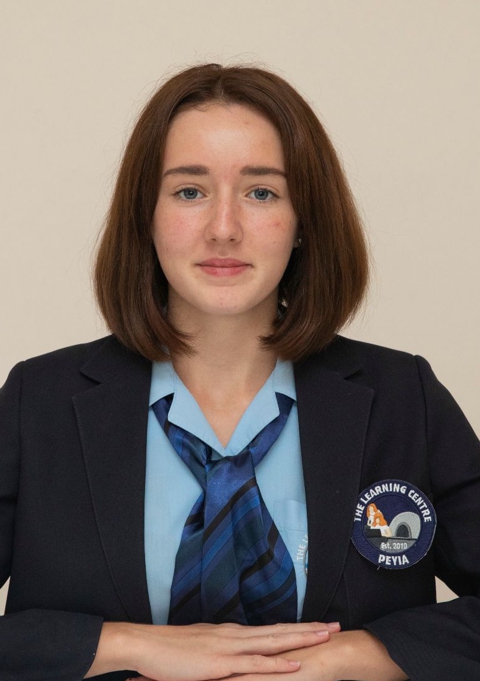
Family is whom you choose to love and be loved by
“Family isn’t always blood. It’s the people in your life who want you in theirs. The ones who accept you for who you are. The ones who would do anything to see you smile and love no matter what.”
I am a child that’s grown up everywhere. My dad’s job changed and moved us around a lot throughout my childhood. When I was six years old we first moved from my home in Kent in England, to Dubai in the UAE, Doha in Qatar, Abu Dhabi in the UAE, Pau in France, and finally, Paphos in Cyprus. I’m now 16. Every couple of years we upped and left the home we’d made, onto the next. Growing up, I got used to expecting the time when my parents would sit my brother and I down and ask what our opinion was on moving again. I never really minded the idea of moving, just the friends I’d be leaving behind. Moving like this meant that the only time I saw my family was on visits to England once every one to two years, or on video calls every now and then. I call them my family because I was raised on stories of them all, because both sides made the effort to keep the connection there, because we wanted each other in our lives. If I hadn’t put in the effort, if they hadn’t, if my parents hadn’t, then I couldn’t call them my family could I? I wouldn’t be able to call them family any more than I could a stranger in the street, because I wouldn’t know them. So how is it that blood means family if family is the connection between loved ones?
Moving around became the usual for us and it was never really easy leaving people behind, but I did, and moved on each time, eventually. That was until we moved to France, where I met two of my best friends. We were there for the normal time period, around two years. When my parents asked what we thought about moving to Cyprus, I was ecstatic. We’d been on holiday to Paphos nearly every year when I was younger and I loved it, the beaches and the sun, and after much decision-making time we moved. That was when things started going downhill. I realised I hadn’t appreciated the people in France. While living there I had met two girls in my class, Victoria and Sofia, who changed my life completely. I could be myself; open, weird, joyful, furious, devastated, whatever it was. All of us trusted each other and I learned for the first time what it was to have that kind of friendship. A raw friendship. One where flaws didn’t mean you were weak, because they loved them about me. It was one where they didn’t label me ‘aggressive’, they labeled me ‘protective’, they didn’t label me ‘psychotic’, they labeled me ‘our weirdo’ and they didn’t label me ‘argumentative’, instead they would say I ‘fought for what was right’. I started to understand that it took a move away, for me to realise that these people were now a part of my family and I loved them dearly.
When I lived in Doha, we had many amazing friends in the compound we lived on. Some of which we still know and love to this day. On multiple occasions we’d go round to each other’s’ houses and my close friend Sophia would call my mum ‘Aunty Esther’ and my dad ‘Uncle Ken’. One day I asked my dad why she called them both that, if we weren’t related to them and he said, that’s what some people do when they have close friends they consider family. When I was going through a time when I felt alone, my mother reminded me of them and all our other friends. She said that even if they weren’t here I could call them up and tell them I felt down, ask to stay, and they would never say no. They’d welcome me with a big hug and a place to rest. Then she told me how not many people can say that they have people like that in their lives. I realised that I had family, family all over the world that weren’t related to me but made my life so much better.
I have struggled with who my family is for a long time. I’ve felt like I’ve been in limbo, feeling as if I should love people who I don’t know. I have cousins, Sarah and Adam, both the children of my Aunty Wendy who I do love and know. My whole childhood, because the older generation of my family knew and loved them, I felt as if I had a duty to feel the same way. Their father, Gary, I have never met. Now, I’d love to have had a good relationship with them and know who they are, but effort must be reciprocated and I cannot build a relationship from mere stories.
“Families don’t have to match. You don’t have to look like someone else to love them.”
If any of you have watched ‘The Blind Side’ you’ll know that this was said by Leigh Anne Tuohy, the adoptive mother of American football player, Michael Oher of the Baltimore Ravens. In 2019, by the end of March, it was shown that both couples and single adopters adopted 3,570 children in UK. All of those children went to loving homes and families. Not all of those families were blood related to the child. Does that mean they loved them any less? Certainly not. They chose to make that person a permanent part of their lives, because that’s who they loved. The Netflix documentary ‘Babies’ shows that when a mother has a baby, she develops a gene that allows her to detect when their child is in danger. A protective gene. Couples that adopt have been shown to develop the exact same gene.
In 2010, an article in the Daily Mail was released called the ‘Nation of broken families’. In the UK, a survey of 600,000 households revealed that 3.8 million children lived with only one of their biological parents. Nearly one third of children lived without a mother or a father. If a child has gone their whole life not knowing a parent, do they miss them? Maybe. Do they want them in their life? Possibly. If a child has gone their whole life not knowing a parent, do they love them, because they are biologically related? No.
“Blood makes you my relative, but it definitely doesn’t make you my family.”
When I moved to Paphos, I became friends with a boy called Greg from South Africa. Our friendship grew quickly, because of how much we had in common and because he trusted me enough to tell me about his story, I trusted him to tell mine, and we both wanted to listen. He told me about his childhood, which I will share with you now, on his permission. Greg grew up in an unstable household. His biological father would cheat on his biological mother, they would get into arguments and throw things, or get abusive, he was told he wasn’t loved and that they regretted having him constantly. It wasn’t the type of environment I ever want to hear a child growing up in. He was later adopted by his mother and father, formerly his Aunt and Uncle. They have 3 daughters, Britanny, Jamie and Megan and have adopted two other boys, Toby and Jesse. When I asked him the names of his (biological) parents, he told me the names of his adoptive parents, not realising I had meant his biological ones. That’s when it came to me. That even though they were his biological parents, they were in no way, shape or form in his mind, his parents. Greg already had his family, his biological parents were merely bloodline. According to a parenting website, backed by 67,000 pediatricians, the five traits of a healthy family are: support, love and care for each other, security and a sense of belonging, open communication, and making each other feel important, valued, respected and esteemed. None of which his biological parents made him feel.
“Being a family means you are a part of something very wonderful. It means you will love and be loved for the rest of your life.”
It is okay for you to not love people you are related too, if you don’t have a relationship. It is okay for you to not call them your family. It is okay for you to make your own family filled with the people you do love and who love you back, because they are the people that will stick with you. We need to stop telling people that blood is thicker than water, because if that blood is poisoned the whole body will die. My family is not just made up of relatives. Opening up your heart and understanding that family is a choice, not a rule, means that you’ll always have people you love all around you.
Bloodline is your relatives and ancestry. Family is whom you choose to love and be loved by.
By Millie Jones Year 11
Annie joined TLC in Year 7 and at that time spoke very little English. She is now studying A-Level English Literature and excels in analyzing the writing of others with incredible insight and sophistication. Furthermore, her own writing ability is exceptional. Annie is a very intelligent young woman, but I admire her most for her consistent hard work and dedication to her own development. I want to share one of Annie’s recent essays, as a fine example of AS Literature work but even more so, as an example of what can be achieved when we are committed to our own success.
Ms Ally

Explore the theme of deceit in the poems Giuseppe and On Her Blindness.
Deception is nothing new, but something that has been integrated into society. It is often portrayed as something harmful, yet there is a certain beauty within it as portrayed in the poems ‘Giuseppe’ and ‘On Her Blindness’, where the effects of deceiving are drastically different. While ambiguity is engendered as a result of the juxtaposition of appearance and reality in both poems, there are obvious distinctions in their intentions. Deception in ‘Giuseppe’ is essentially working for own benefit and in order to avoid guilt, whereas ‘On Her Blindness’ is about self-deception in which to gain a sense of comfort, therefore encouraging the reader to reconsider the ultimate impact of deceit.
As the essence of deceit, both Ford and Thorpe explore the disguised truth through the conflicting public appearance and inner truth. In ‘Giuseppe’, the world is portrayed as a glamorous place, but where darkness is hidden within. The abundance of assonance in the description of ‘courtyard behind the aquarium, where the bougainvillea grows so well’ creates aural imagery, which illustrates the beauty of the natural world. However, this is juxtaposed with ‘mermaid…butchered on the dry and dusty ground, where Ford makes use of harsh consonance, which has connotations of violence and brutality. This comparison highlights the contrast between the two, making the dark side of the world even more brutal. Similarly, in ‘On Her Blindness’, Thorpe also portrays the conflicting nature of society, in which one’s true emotions cannot be shown to the public. Thorpe describes his mother as having to ‘find joy in the fight’ with her disability. The oxymoron of ‘joy’ and ‘fight’ illustrates the absurd social expectation where struggles are concealed by the seemingly cheerful appearance. This irony of behaviour also creates a comedic effect, almost mocking the nature of deception. In the same way that Ford conveys the unpleasant side of the world hidden under the heavenly appearance, Thorpe also demonstrates the disguised truth as covered by the deceitful public appearance.
Almost without exception, what comes with deceit and the disguised truth is an inevitable ambiguity, which is demonstrated in both poems. However, the effect of this ambiguity is distinctive, it can be unsettling as presented in ‘Giuseppe’, yet it can also be comforting, as conveyed in ‘On Her Blindness’. For example, the narrative style in ‘Giuseppe’ contributes to the confusing and uncomfortable atmosphere that is generated. As the poem is told as a story from the narrator’s uncle, the account is made less reliable as perceived by the reader. This is further reinforced when the mermaid is described as ‘she, it, had never learned to speak because she was so simple’. The obscurity of whether the mermaid is human or fish is especially unsettling as suggested in the personal pronouns, together with the abundance in the use of sibilance, which has connotations of secrecy, a sinister atmosphere emerges, and adds a sense of distress within the reader. By contrast, although ‘On Her Blindness’ is also filled with ambiguity, the most significant one being the ending, it is of a different sentiment. Thorpe ends the poem with a one-line stanza: ‘she was watching, somewhere, in the end’. As the theme of blindness throughout the poem, the verb ‘watching’ draws great attention from the reader. It could be seen as the hope of the son, where his mother could regain her sight after death, as to make up for her loss of this ability during her lifetime; or, a change of roles between the mother and the son, a parallel of the mother relying on the son as her eyes for her courage to life, and now for the son to believe his mother is always with him for comfort and security. Either way, this isolated line with caesura amid, slows down the pace and therefore creates a sense of reassurance for both the poet and the reader, as this ambiguity compensates for the regrets we once had. Ultimately, we see despite both evoke a sense of uncertainty regarding what is the actual truth, a stark contrast remains in how this ambiguity is received – almost two extremes on a spectrum.
The reason for the different effects of ambiguity that are emerged from deception, however, can be explained by their nature. Although both poems have the central idea of deceit, fundamentally they are presented through different lenses. ‘Giuseppe’ at its core illustrates a disguise in which these men try to cover their wrongdoings in front of others, but for their own benefit of survival and minimising their guilt. This is conveyed through the monosyllabic stanza: ‘The rest they cooked and fed to the troops. They said a large fish had been found on the beach.’ As every single word is monosyllabic without exception, a sense of brutality and callousness is generated. Furthermore, the use of the two end stops is again reinforcing the idea of finality and their firmness, as if to numb themselves with their actions, and thereby reduce their guilt of killing. Arguably, this could simultaneously be seen as an alluring power, as in stories people could fantasise to avoid the raw reality, and justify themselves without being demolished by the dark side of the world. Similarly, in ‘On Her Blindness’, with the mother being in an unpleasant situation, lies are told to herself as aspiration, when facing the ‘golden weather’, she says: ‘Oh yes, I know’. The euphony created by the assonance is however in stark contrast to the harsh syllables in ‘Giuseppe’. Here, hopes and continuity of life, the richness in her and the natural world are summarised and mirrored in the sounds of these words. Unlike the story told in ‘Giuseppe’ which aims to cover and numb for relief of guilt, the self-deception of the mother in ‘On Her Blindness’, has a different element of beauty, that is, the courage and hope it brings to one’s life.
As both poets presented, deceit while can be harmful, there are certainly positive elements within, especially when present with good intentions. However, through these structural and language differences, Ford presents deceit as something mostly unsettling, where by contrast, Thorpe portrays deception as a gentle way of coping, and an elegant way of keeping one’s dignity. In essence, deception is not lies, but stories, which are tools for humans to protect themselves from exposing to the dark side of the world.
By Annie Lin Y12
Year 7, 8 and 9 History
Click to view some wonderful newspapers produced by Year 7, 8 and 9 students.
Year 10 Business Studies
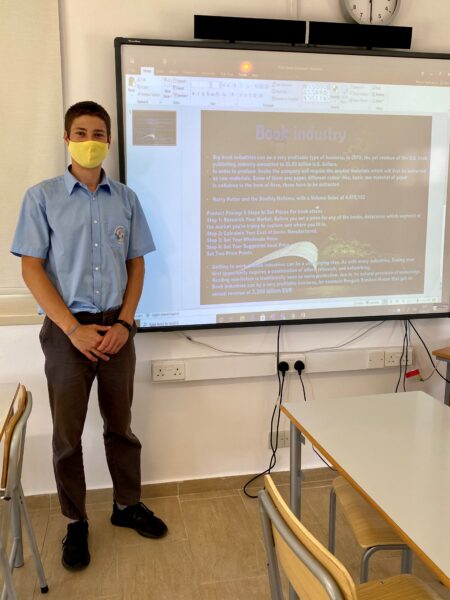
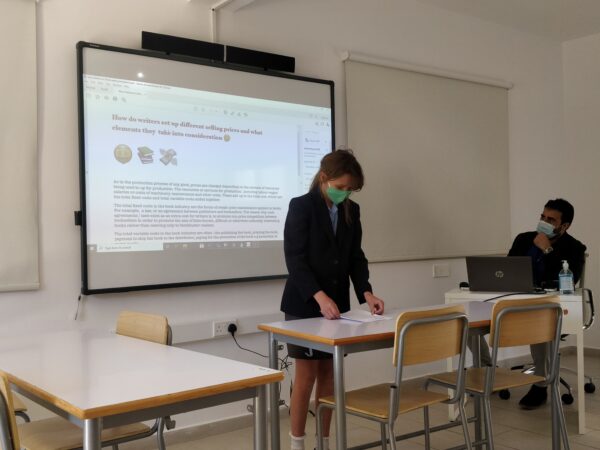
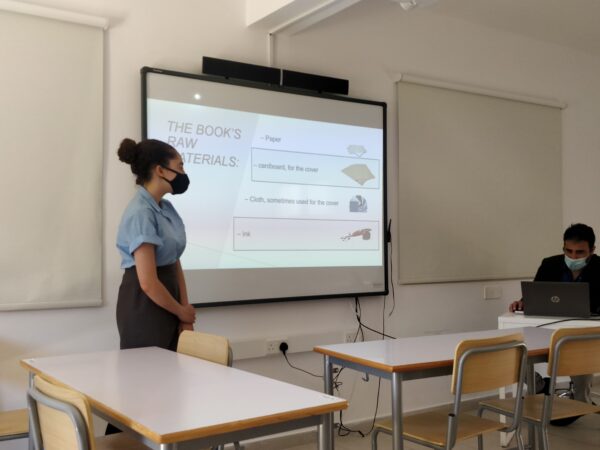
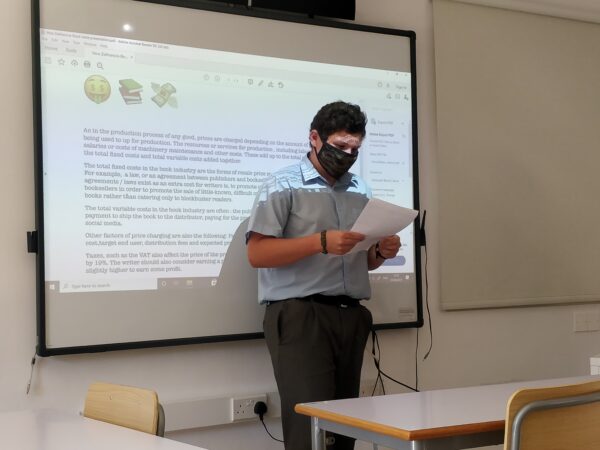
As part of our World Book Week activities, in Business, students delivered presentations highlighting the significance of the global book industry from a business perspective.
Well done students, your presentation were amazing. We are very proud of all your hard work!
Mr Marinos, Business Studies Teacher
Looking for volunteers
Hi there! Do you want to change the world for the better?
Join Team Eco Protect (TEP)

What do we do?
Our aim here at Team Eco Protect is to change the world we live in today. Carbon dioxide is contributing to the greenhouse gases and global warming. This means that the ice caps are melting and the ocean is rising (and cute animals are becoming extinct!). If you want to help by doing simple things like litter pickups, recycling, beach clean-ups etc. or if you’d like some more information, then email TEP at this address: eve-sco@tlccyprus.com
I am happy to answer any questions that you may have. If you are willing to join the club, please send your name, age, email address and class.
Evelyn Scott (Year 7L) Team Eco Protect Leader/founder

